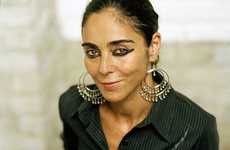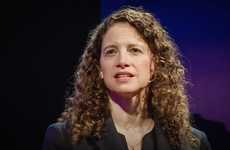
Need Inspiration?
Get inspired by 4,000+ keynote speaker videos & our founder, a top keynote speaker on innovation.
Deeyah Khan Considers Personal Experiences in Her Talk on Rejection
Riley von Niessen — February 22, 2017 — Keynote Trends
In her talk on rejection, Deeyah Khan, a human rights activist, music composer and film director, addresses her audience by explaining her childhood, when she was growing up in Norway with an Afghan mother and a Pakistani father.
She took pride in feeling like she understood many different cultures on such a personal level. When she was 12 years old however, she realized how real discrimination really was, when a white man spit in her face and called her a series of racial slurs. As she aged, she began to face discrimination from others with Muslim backgrounds when she was considered to be "too successful for a woman." Chemicals were thrown in her face, people threatened her with rape and much more.
Eventually her parents sent her away because they felt like they could no longer protect her and nobody was stepping up to say that she was being treated wrongly. When she was in London, she experienced similar acts of discrimination and she eventually moved to the US instead. Once there, she decided to take steps to protect other young people who were dealing with the same issues.
Throughout her talk on rejection, Deeyah Khan explains the discrimination faced by Muslim children in Europe on all fronts. This is especially difficult for them, as they are constantly trying to bridge that gap between their families and the countries they were born in. By exposing this through film, she hopes to prompt others to take a stand against such injustices.
She took pride in feeling like she understood many different cultures on such a personal level. When she was 12 years old however, she realized how real discrimination really was, when a white man spit in her face and called her a series of racial slurs. As she aged, she began to face discrimination from others with Muslim backgrounds when she was considered to be "too successful for a woman." Chemicals were thrown in her face, people threatened her with rape and much more.
Eventually her parents sent her away because they felt like they could no longer protect her and nobody was stepping up to say that she was being treated wrongly. When she was in London, she experienced similar acts of discrimination and she eventually moved to the US instead. Once there, she decided to take steps to protect other young people who were dealing with the same issues.
Throughout her talk on rejection, Deeyah Khan explains the discrimination faced by Muslim children in Europe on all fronts. This is especially difficult for them, as they are constantly trying to bridge that gap between their families and the countries they were born in. By exposing this through film, she hopes to prompt others to take a stand against such injustices.
2.3
Score
Popularity
Activity
Freshness
















